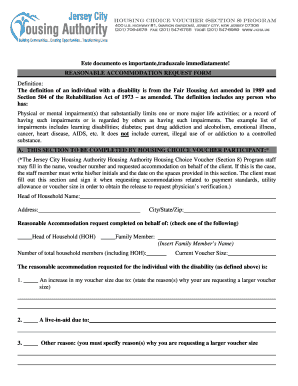

A request is not reasonable if it would cause an undue hardship or if it would somehow fundamentally change the landlord’s business. However, if the request is not reasonable, the landlord doesn’t have to grant it. A landlord’s failure to grant a reasonable accommodation request is discrimination. To qualify for a reasonable accommodation in your housing, you must have a disability and the reasonable accommodation must be necessary to give you an equal opportunity to use and enjoy your home. Accommodating behaviors directly related to a person’s mental disability.Allowing a variance of a rule about fence height to accommodate the needs of children with disabilities.Placing a mailbox in an accessible location.Accepting rent later in the month based on when a tenant’s monthly check arrives.Allowing a tenant to have a live-in aide.Allowing a tenant to move to an available, more accessible unit.

Assigning a parking space for a person with limited mobility.Allowing service/emotional support animals in “No Pet” housing.Examples of reasonable accommodations in housing In other words, sometimes your landlord must change their rules so that you can use and enjoy your home the same as people without disabilities. If you need something because of your disability, you can request a reasonable accommodation.Ī reasonable accommodation is “a change, exception, or adjustment to a rule, policy, practice, or service that may be necessary for a person with a disability to have an equal opportunity to use and enjoy a dwelling, including public and common use spaces.” Fair Housing laws also prohibit housing providers from making discriminatory statements based on someone’s disability.

If you are buying or own your home, Fair Housing laws may protect you against discrimination by your real estate agent, mortgage broker, or homeowner’s association.


 0 kommentar(er)
0 kommentar(er)
